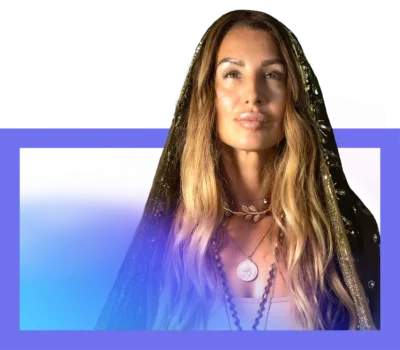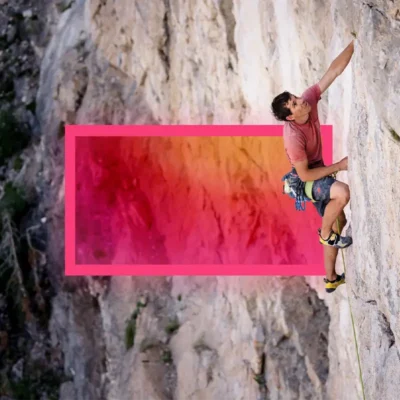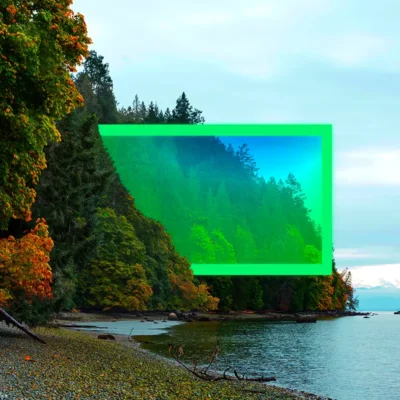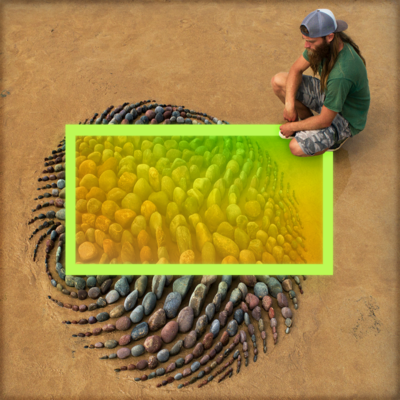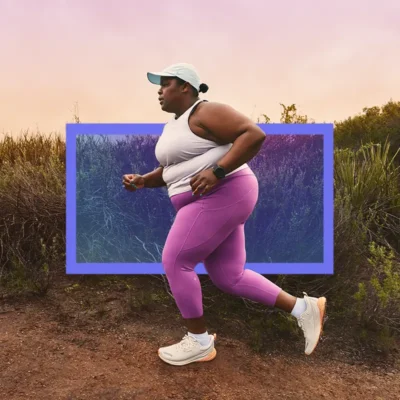Magic is a serious business
Gracia María is a modern-day medicine woman, practicing community rituals in the tradition of her Peruvian ancestors. In connecting with her deep and ancient roots, though, she realizes she also needs to rebuild the bonds with her immediate family, in order to share with them the person she’s become. She learns the value of staying centered in her authentic self – knowing it will eventually bring others to her.
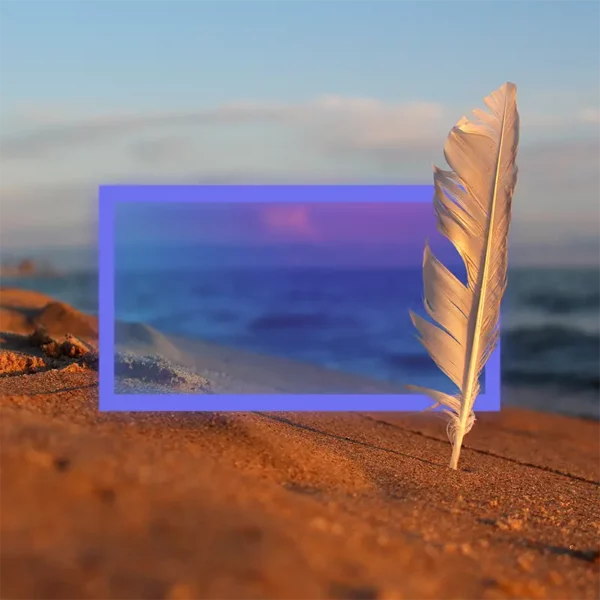
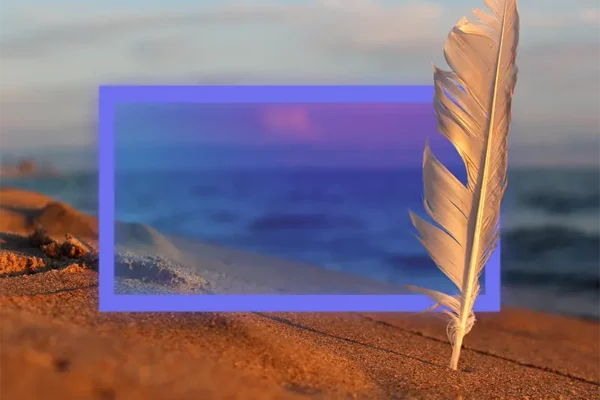
Table of Contents:
Transcript:
Magic is a serious business
GRACIA MARIA: A huge flock of birds start circling around and over us – hundreds and hundreds of them. They seem to come out of nowhere. They swoop in a circle, hovering over the mandala. As they flap their wings, feathers fall off their bodies and plummet to the ground. The whole family is in tears, everyone holding massive feathers in their hands and recording on their phones. Their eyes are wide with awe … When birds are approaching a new season, they shed their feathers to grow sturdier ones for what’s to come.
ROHAN GUNATILLAKE: Gracia María is a modern-day medicine woman, practicing plant-based medicine and community rituals in the tradition of her Peruvian ancestors. In connecting with her deep and ancient roots, though, she realizes she also needs to rebuild the bonds with her immediate family, in order to share with them the person she’s become.
In this series, we combine immersive first-person stories, breathtaking music, and mindfulness prompts so that we may see our lives reflected back to us in other people’s stories. And that can lead to improvements in our own inner lives.
From WaitWhat, this is Meditative Story. I’m Rohan, and I’ll be your guide.
The body relaxed. The body breathing. Your senses open. Your mind open. Meeting the world.
MARIA: It’s a magical, beautiful night. It’s December in Florida, and I’m having dinner with my father and his girlfriend Priscilla. It’s only my second time meeting her, but I love her already.
My boyfriend is DJing in the restaurant – a mashup of dreamy songs, old and new. The wine flows. The candlelight flickers. I feel warm and happy inside. I don’t want to miss a moment of this night. When the conversation lulls, I get up to walk to the restroom. But then the music changes. I almost recognize the song. It starts instrumental. There’s a harmonica.
“What is it?”
Then it clicks in my head. It’s “Isn’t She Lovely.” Stevie Wonder wrote it after he met his daughter for the first time in the hospital room.
I turn around and run – I mean, I really run! – back to the dining room. I have to dance when I hear this song. Out of the corner of my eye, I see Dad already standing up. His chair is pulled out. He dances towards me in his bright yellow pants and red checkered belt, a cigar between his pursed lips. Of course he’s dancing. We always do the same thing without realizing it.
I smile. What a spectacular, spectacular man. When he enters the room, people fall in love with him. He’s so charming, so colorful. And there’s this sacred, untouchable thread that tethers us together.
We look a lot alike. And we love so many of the same things. He loves horses. I love horses. He loves wine and dancing. So do I. We both love food. We both love to travel. He left Peru when he was 17 to study in Boston before traveling the world. I took off for Tokyo at 16.
I laugh. We always have the same idea. We’re the spontaneous ones who force our chairs back from the table to dance when our favorite song comes on in the middle of dinner. In a fancy dining room. Because why not?
This untouchable thread tethers us together. But it hasn’t always been this way.
Growing up in Lima, my siblings and I don’t spend much time with Dad. He always has a social occasion to attend. My brother, sister, and I are an inconvenience. Dad is remarkable, but unreachable.
And in truth, I have a horrific childhood. The suffering at the hands of my mother is so extreme that my brother leaves home at age 13. For years, my sweet-hearted brother, Joaquin, lives with the homeless in the parks of Lima. I visit him to bring him food and money. Until one day, he disappears. I panic because no one knows where he is.
Our family driver secretly takes me aside, and tells me he knows where Joaquin is. He’ll take me – if I promise not to tell my mother. It turns out Joaquin is being held in a mental hospital; I come to understand that my mother has him taken there, so that she won’t be embarrassed by seeing him on the streets. Eventually, I get him released. He goes back to the streets again.
My father rarely intervenes on our behalf. With his work and travels, he has no idea how difficult life is for my siblings and I at home.
I learn later that Dad grew up with abuse and sadness of his own. Maybe turmoil at home seems inevitable to him. Maybe he can’t bear to face it. I don’t know. We can never completely understand another person’s path. But I love my father, and I’m “the apple of his eye.” This allows me to grow close to him over time.
As we sway together, the photographer snaps photos, and I hear my boyfriend over the mic. “Well, now I know where she gets it from,” he says to the crowd. “Like father, like daughter!”
I pour more wine into our glasses and sit back in my chair. My Dad and I always create these beautiful spaces to meet one another in. These moments of recognition. All my best parts come from him.
Seven years later, I’m at dinner again with Dad. This time, we’re at a wine festival he’s organized in Lima. And the night couldn’t be more different.
Dad barely acknowledges me. The distance between us is palpable. He hasn’t changed. But I have.
Before, I was a social butterfly just like dad. We connect over dancing and drinking and food. Now, I’m on a different path, one that’s more spiritual where parts of my past don’t resonate anymore. I want nothing to do with those things.
It started with my grandmother. Growing up, she’s my greatest teacher. She’s kind and wise. She’s a woman of prayer. She’s a healer
Later on in life, I tap into my own spirituality, but in a different way. I become a student of ancient rituals and the power of plant medicine. I embark on my own healing journeys to deal with the trauma from my childhood. I learn icaros – the medicine songs used in healing ceremonies. I step away from my career in public relations, and into a life of service. I become a medicine woman, in the tradition of my Peruvian ancestors. This is who I really am, who I’ve always been.
But it’s very hard to explain what I do to people who haven’t experienced it. And my father doesn’t understand. He looks down on my new life. “I guess she’s doing drugs, and she’s just become this hippy. We’ve lost her,” he says.
He misunderstands, so he worries. His fear turns to judgments of me for the path I’ve taken. I don’t help him understand. I don’t trust him to see the wisdom in the path I’m on. So I feel judged. And I judge back.
GUNATILLAKE: Two fascinating people, Gracia and her father. What judgements about them have arisen from the story in your mind so far? Are you able to let those go? Are there people in your life that bring up a lot of judgment? Are you able to let those go?
MARIA: I start to focus on how my father fails me. My brother is missing now for 20 years. My father does nothing to find him. I’m a mom now. And if my son went missing, I wouldn’t be out drinking wine and going to parties. I’d have to find my son. I harbor this deep resentment towards Dad, and I let the anger grow like kudzu – silently choking the life out of our bond.
Sitting at dinner, I play the role of my former self – in order to be with him. I rarely drink anymore, but tonight I drink wine – a lot of it. I don’t eat meat any more. But I order steak. I hate every minute of it. Because I’m denying who I am.
It’s ironic, really. Because so much of my work as a medicine woman offers people the keys to their own freedom – the ability to heal old wounds and wake up to their authentic selves. And I always guide people on how to re-enter their old lives. Stay strong and centered in your own authentic self. It can eventually help the people around you. You can only plant seeds, that’s the most powerful thing you can do to inspire an awakening.
But when it comes to my own family, I can’t do it. I don’t have the courage to reveal my true self to them – to give them the chance to understand, and to heal and free themselves. I’m not brave enough yet to take this opportunity. I shrink. I become a walking lie when I’m with them.
Dad holds a cigar in one hand and a glass of red in another. It’s so obvious he’s ignoring me. Dad takes a long puff on his cigar and turns to my friend Phillipe, who he respects.
“So what brings you to Peru, Philippe?” he asks him.
Phillipe looks at me. He’s a bit confused by the question because he’s come to Peru to take part in a plant medicine retreat with me. He says, “Well, I’m sure your dad knows what you do.”
Dad just rolls his eyes and asks him again, “What’s happening?”
Phillipe starts explaining to my Dad what it means to sit in ceremony with plant medicine. The ceremony I’m leading. Dad is full of questions now. What kind of ceremony? What kind of medicine? How does it work?
These are more questions than Dad has ever bothered to ask me and this is my life. But as much as I want him to understand me, I don’t teach him, or help him find ways to connect with me.
Dad’s phone buzzes on the table. I catch a glimpse of his screensaver. It’s the same one he’s had since he got the phone – a photo of him and me, cheek to cheek, smiling. Seeing it, I remember our deep connection. But it feels so distant to me now.
The music and wine are too much for me. I’m ready to go, and Dad walks me out to the car. I’m so angry. I’m just looking at him like, “How can he be my father? He’s so asleep!” Despite my rigid body language Dad pulls me in for a hug. I don’t know why. Maybe he’s trying to connect without words. Maybe he’s trying to meet me where I am. But in this moment, I can’t see that, I can’t access my higher self. I allow him to hug me, but I offer nothing back.
I don’t know it yet, but this is the last time I ever hug him.
The following day, I block him from my phone, from my social media accounts. I block him from my life.
I’m very, very careful as I place the ceremonial feather at the crown of my head. My hair is pulled in two loose braids running down my back. The incense and tinctures are ready. In just moments, I’ll step into ceremony, where I’ll anchor the presence and wisdom of all of my ancestors.
I reach to turn my phone off before it all begins. It buzzes in my hand. It’s a message from Dad.
We haven’t spoken in two years. But I unblock him when my sister tells me he’s sick with cancer. It’s February when we start texting back and forth. He says to me, “I promise you, no matter what, that in March or April, I’m coming to see you. I want to understand the work you do. I want to see your life.”
I’m excited. But something is shifting in him. He’s accepting my path. He’s waking up. “Everybody in their own time,” I say.
A week later, he walks into the hospital with Covid, and he never walks back out.
I’m overlooking the ocean when the text about his passing rolls through. It’s a big group chat full of family I barely talk to. I feel so disconnected, I don’t even cry.
The next morning, I drive to tell my son his grandfather has passed. I’m moving down I-95 when it starts raining. Buckets and buckets. Brake lights flash red as all the cars in front of me come to a crawling halt. It finally hits me. He’s gone. He’s really gone.
A pain I’ve never felt before overtakes me. Instantly, I’m crying so much that I can’t see past my tears. It’s like waterfalls coming through my eyes. I’m flooded with guilt and remorse over all the things I never said to him.
I’m frustrated with friends who say things like, “Oh, you understand death so well. I’m sure you go about it with so much grace.” I’m sorry, but people are so silly sometimes. Why do they think I’m not going to mourn in the same way everybody does? Yes, I believe our souls transcend our bodies. But I’m also human. And what I’m mourning is humanness. I’m never going to talk to him again. I’m never going to hug him again.
GUNATILLAKE: Mourning matters. Imagining Gracia where she is in this moment, let’s just be with her. Simple and present.
MARIA: Preparations start for the funeral. The family agrees to delay it until I can arrive. I pack ahead with the things I’ll need to play the part I think I need to play: A little black dress, though I don’t wear dresses. Uncomfortable heels, though I live in flip flops. I have no idea how this will go. Dad is one of six siblings. We couldn’t be more different. None of them understand my life now.
When I arrive in Peru, the whole family is waiting on me. My sister and stepmother decide that there won’t be a traditional funeral. Instead, they ask me to perform a ceremony for Dad.
I’m stunned by the request. The family knows nothing about what I do. But they tell me: “Dad loved you. It makes sense for you to lead us through this.”
I tell them to meet me on the beach, just before sunrise, wearing a smile and colorful clothes. I ask them to bring wildflowers – again, colorful, just like Dad. To my surprise, they agree to everything, and show up with excitement.
In the morning, I dress as I always do for the ceremony. But I’m aware that none of them have ever seen me this way – and I don’t want to freak them out! So I keep it simple. I wear a long, flowing, bright yellow skirt, a black shawl. And at the crown of my head, a single ceremonial feather.
It’s cold and dark as we walk out onto the beach together. The moon still hangs in the sky. We spread out and form a circle. I look around at these faces in the dark holding flowers in their arms. I exhale any hesitation and begin.
I show them how to place the flowers down into the sand to create a “Mandala.” Mandala means completeness, self unity, circle – and that’s the shape we create with the flowers. The bottom of the stems meet at the center, and the flowers fan out to form a circle of color – yellow, pink, purple, blue.
With the mandala prepared, it’s time to release Dad’s ashes. We have two horses with us. I mount one, and my sister mounts the other. Horses are our connecting point with Dad. And horses also symbolize freedom. It’s the only way to release him.
We ride down the beach for a stretch, then turn to ride back – towards the mandala. I hold the urn with dad’s ashes tight under one arm. I start releasing them. I hear my sister gasping, “Oh my god! Oh my god!” but I don’t yet know why.
As I run with the horse and release his ashes, a huge flock of birds start circling around and over us – hundreds and hundreds of them. They seem to come out of nowhere. They swoop in a circle, hovering over the mandala. As they flap their wings, feathers fall off their bodies and plummet to the ground.
The whole family is in tears, everyone holding massive feathers in their hands and recording on their phones. Their eyes are wide with awe. The ground is completely covered in feathers. You would think we killed 1,000 birds out of the sky for the amount of feathers on the ground.
I jump off the horse, and we all begin scooping up feathers by the handful.
“Think about a wish or a thought you want to send to Dad,” I tell them. I show them how to blow the wish into the feather and place it into the mandala. Then we have the children pour the rest of Dad’s ashes into the middle of the mandala. We place resin in the center and light it, to symbolically carry our prayers up into the heavens.
We stand as a family in front of this collection of feathers and flowers and ashes, and an overwhelming peace passes through me.
When birds are approaching a new season, they shed their feathers to grow sturdier ones for what’s to come. It’s called “moulting.” The feathers are dead parts of them falling to the ground as they shed old skins.
My mind flashes back to the text Dad sent before he died. “I promise you, no matter what, that in March or April, I am going to come to see you. I want to understand the work that you do. I want to see your life.”
He promised he’d visit me and see my work. And he is. He’s here. He’s here to see me do my work, and to make sure the family sees me too. He’s here to give me my freedom. The freedom to fully embody who I am, and to give the gift of my awakening to my family.
And this is so like him to show off in this way, all these feathers trickling down and falling on us. Everywhere he is, there’s magic.
In life, our greatest challenges – and our greatest potential – come from those closest to us. Our parents. Our partners. Our children.
If you pray to become more patient, the universe will begin throwing you all sorts of opportunities to practice what it is to actually have patience. It’s not like you wake up one day, and you’re a super patient person. You’re just given chance after chance, exercise after exercise, to practice patience. Most often with the people you love.
Here I was, preaching all these beautiful things to other people, and not embodying it myself. I tell other people: Don’t judge others. Just stand in your own truth. Then the universe breaks in and says, “Okay, really? Let’s see if you pass this next test.” And then boom. Another chance to practice what I know deep within myself.
Through his passing, my father gives me the opportunity to be my most authentic self. To give others the opportunity to see me. And to give them a chance to awaken themselves.
Many people worry that others won’t resonate with you when you express your authentic self. But it just isn’t true. When you’re your authentic self, you’re phenomenal. You’re perfect. You radiate so much pristine light, which comes from a place that is only love. How could someone not resonate with that?
Every parent and child have a contract between them. And I think my father’s contract with me is to always remind me how magic is a serious business. It takes a lot of serious commitment and wisdom to anchor my life in magic.
Many months later, when I wake up in the morning I open the glass door to my balcony which overlooks the bay. It’s Father’s Day. The warmth and sunshine flood in. A dove rests quietly on the balcony. It leaves a single brown feather on the stone floor. Some people don’t believe in signs. I’m alright with that. But I do. I believe this is my father visiting me again. I believe this is my father’s magic.
I carry dad with me into everything. He teaches me even more now, but there are so many things just for him and me to keep. We’re still always creating beautiful spaces to meet one another in. Gracias Papi.
Rohan’s closing meditation
GUNATILLAKE: Thank you Gracia. Your story has me reflecting on how the loss of a loved one has the power to impart great wisdom. In her Meditative Story, Lucy Kalanithi navigates loss by viewing the world through the eyes of her daughter, eyes unburdened. I invite you to listen to Lucy’s episode, the very first in our feed.
Gracia, in a way I feel that you’ve created a kind of ceremony with your story and so for our short closing mediation together I want to stay within it.
At Gracia’s father’s funeral, as the feathers sail down, she invited her family to bring to mind a wish or thought to send to him. The wishes were then transferred into the feather and placed into the mandala. So let’s do our own version of that.
With a straight back and a soft belly, reflect on a person who is no longer in your life. Someone whom you have some good feeling – even though there may have been times of struggle.
Adjusting your body so that it remains soft, what is the wish or thought you would like to send to them today?
Ok, now pick up a feather. Using your imagination as much as you’d like, pick up a feather from those at our feet.
What color is it? How does it feel in the hand? What detail is here? Barbs, the subtle sections, smoothness, and sharpness.
With the feather in both hands, drop your wish for your lost one into it.
Go with it, and I’ll do the same.
That done, let’s place it in the mandala in front of us as we stand here in a circle. Thousands and thousands of us placing feathers in every shape and size and color that you can imagine, that we have imagined.
Now that is placed, settle your awareness back into your body. Knowing the body how it is.
And in Gracia’s ceremony we place resin in the center and light it to symbolically carry our wishes to the heavens.
Belly soft and back straight. Our body that which connects the earth to the heavens. Feeling the connection with the earth however your body is. And feeling your connection with the heavens above.
And letting yourself be a conduit for the wishes for your lost one to ascend.
Thank you for taking part in that. Thousands and thousands and thousands of people listen to this show with you. And there is something magical about the image of all of us creating this ritual space together.
So thank you Gracia for reminding me of how close to magic we always are.
And again, thank you.
Be well.

